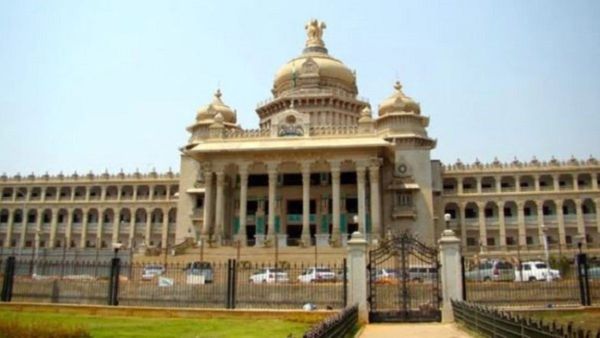Greater Bengaluru Urban Reform Act
Current Affairs NationalPosted by newadmin on 2025-03-12 08:51:38 |
Share: Facebook | Twitter | Whatsapp | Linkedin Visits: 70

The Karnataka Assembly recently passed the Greater Bengaluru Governance Bill, which aims to decentralize power and enhance urban governance in Bengaluru. Deputy Chief Minister DK Shivakumar introduced the Bill, emphasizing that it would strengthen the city rather than weaken it. However, the proposal faced strong opposition from the Bharatiya Janata Party (BJP), which expressed concerns about the concentration of power.
The Bill is designed to improve Bengaluru’s governance by decentralizing administrative authority and allowing for more localized decision-making. It seeks to address the growing complexities of urban management by establishing the Greater Bengaluru Authority (GBA), which will oversee the planning and development of the Greater Bengaluru Area. This new authority is intended to coordinate various civic agencies and parastatals to ensure more effective governance.
One of the key provisions of the Bill involves restructuring the Bruhat Bengaluru Mahanagara Palike (BBMP) by dividing it into multiple smaller corporations. The proposed plan suggests breaking BBMP into three to seven smaller units, making governance more manageable and efficient. Additionally, the Bill aims to empower ward committees, making them essential units of urban governance. This move is intended to enhance community participation, giving residents a greater say in local decision-making.
Financial autonomy is another significant aspect of the Bill. The newly formed corporations will have greater control over revenue collection, particularly in property taxes. The state government has assured that it will provide financial support to these corporations to ensure their sustainability and prevent revenue shortfalls.
Despite these objectives, the Bill has faced strong opposition from the BJP, which argues that it contradicts the principles of the 74th Amendment of the Constitution, which promotes local self-governance. Opposition leaders claim that instead of decentralizing power, the Bill concentrates authority in the hands of the Chief Minister, potentially weakening the autonomy of elected local bodies.
Political reactions have been divided. While the ruling party views the Bill as a necessary step toward better governance, the opposition warns that it could lead to administrative confusion. The debate highlights the ongoing challenge of balancing efficient urban management with maintaining democratic structures in Bengaluru.
Search
Categories
Recent News
- Schools Unite Against Substance Abuse
- Industrialist's High-Flying Escape: A Tale of Mumbai-Pune Expressway Woes
- Gold and Silver Prices Plunge: Mumbai's Market Update
- Market Movers: Tech Giants, Telecoms, and Consumer Brands in Focus
- Yoga Guru's Selfless Service: A Cabinet-Rank Advisor Without Pay
- Former Cricket Coach's Child Embarks on Gender Transition Journey
- Propylene Gas Tanker Crash Snarls Mumbai Traffic for Over a Day
- Custodial Death Confirmed: CBI Exposes Police Brutality in Sivaganga
Popular News
- Navigating IPO Market Dynamics Amid Volatility and Regulatory Changes
- Massive Worldwide Microsoft Outage Disrupts Multiple Sectors
- Panjapur Bus Stand to Reshape TNSTC Routes
- తెలుగుదేశం పార్టీ - పేదరికాన్ని నిర్మూలించడంలో వాగ్దానం
- Universities Embrace Remote Learning Technologies Amidst Ongoing Pandemic